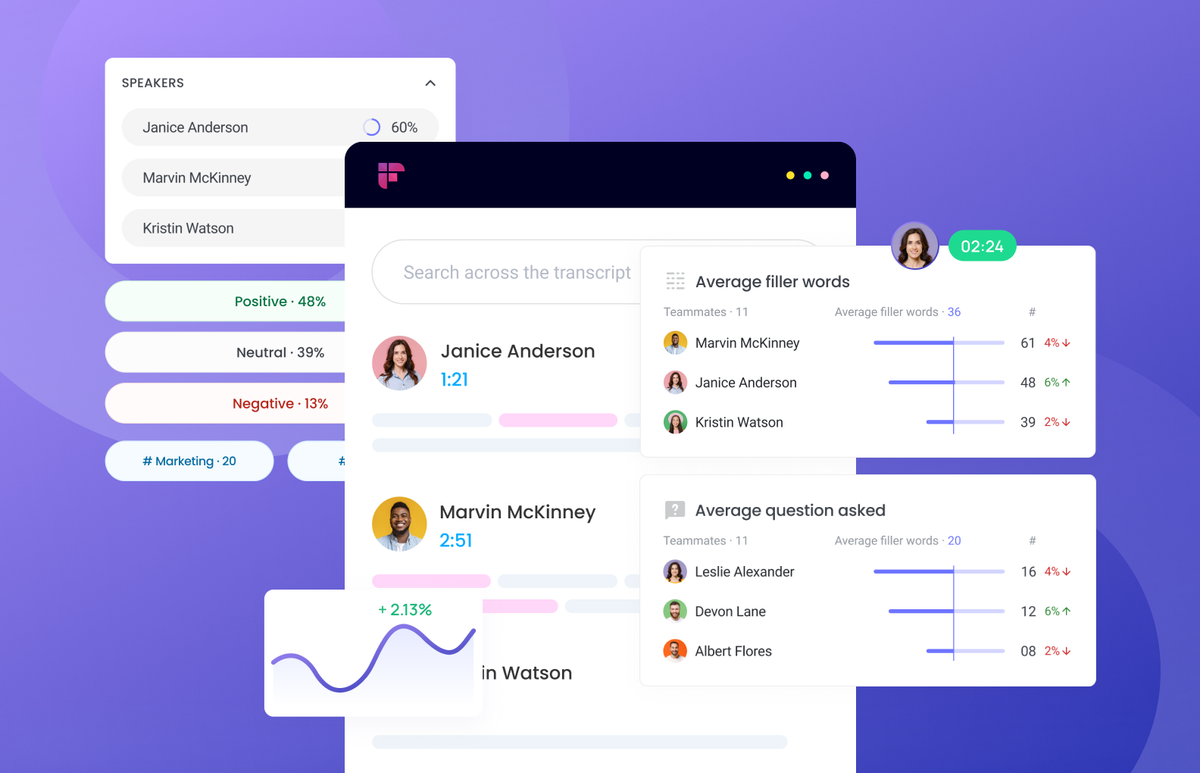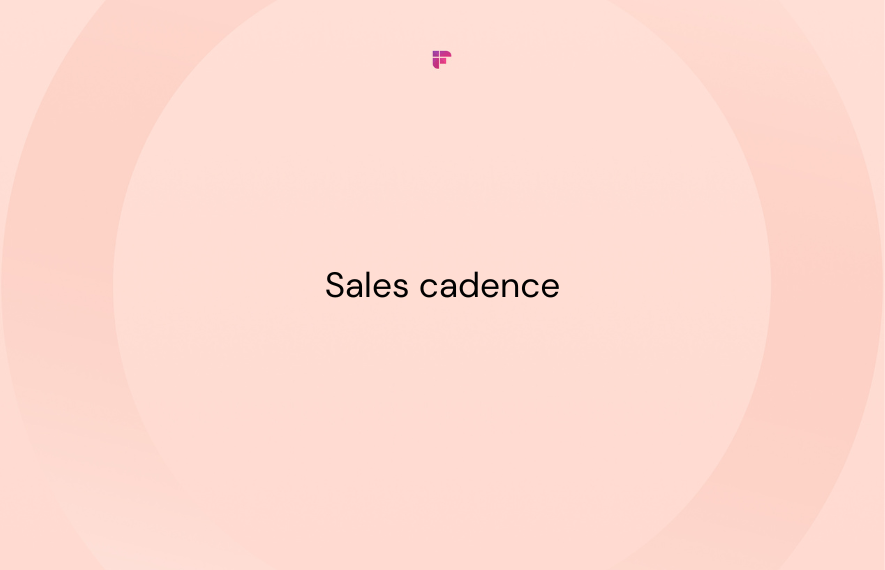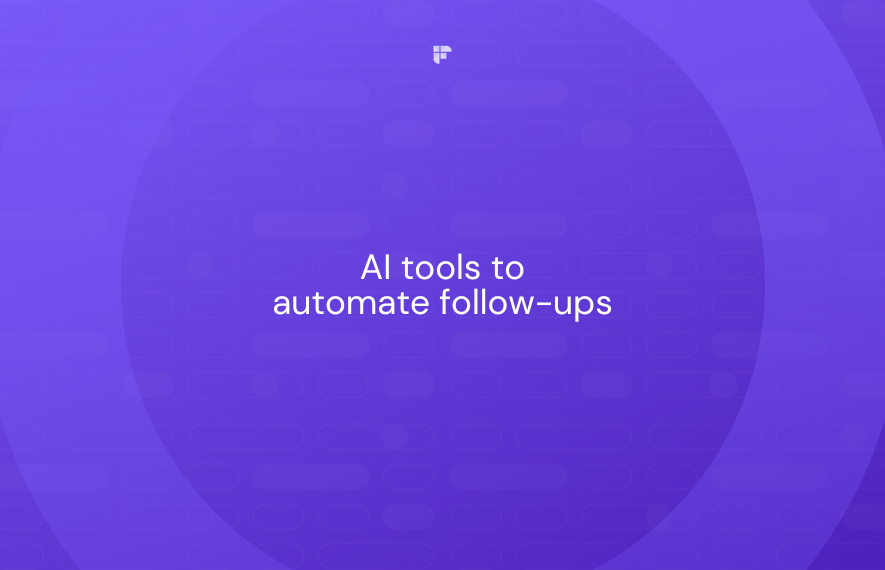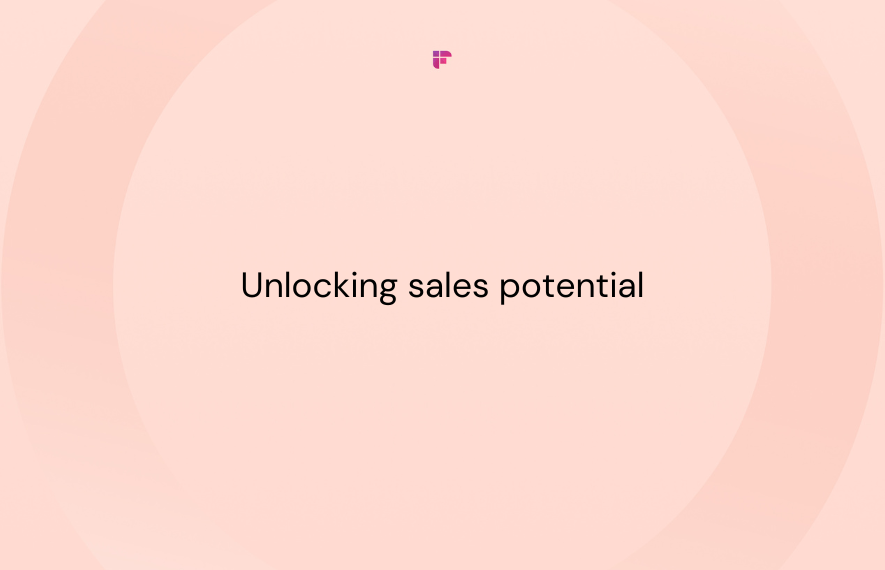Your journey of customer conversion, from prospects to buyers, is long. You might get the first step right today.
But what about the next one? How do you even know when to take the next step?
That's what a Sales Cadence does. By creating a strong sales cadence, you give more structure to your outreach, which improves and optimizes your campaigns and drives more sales.
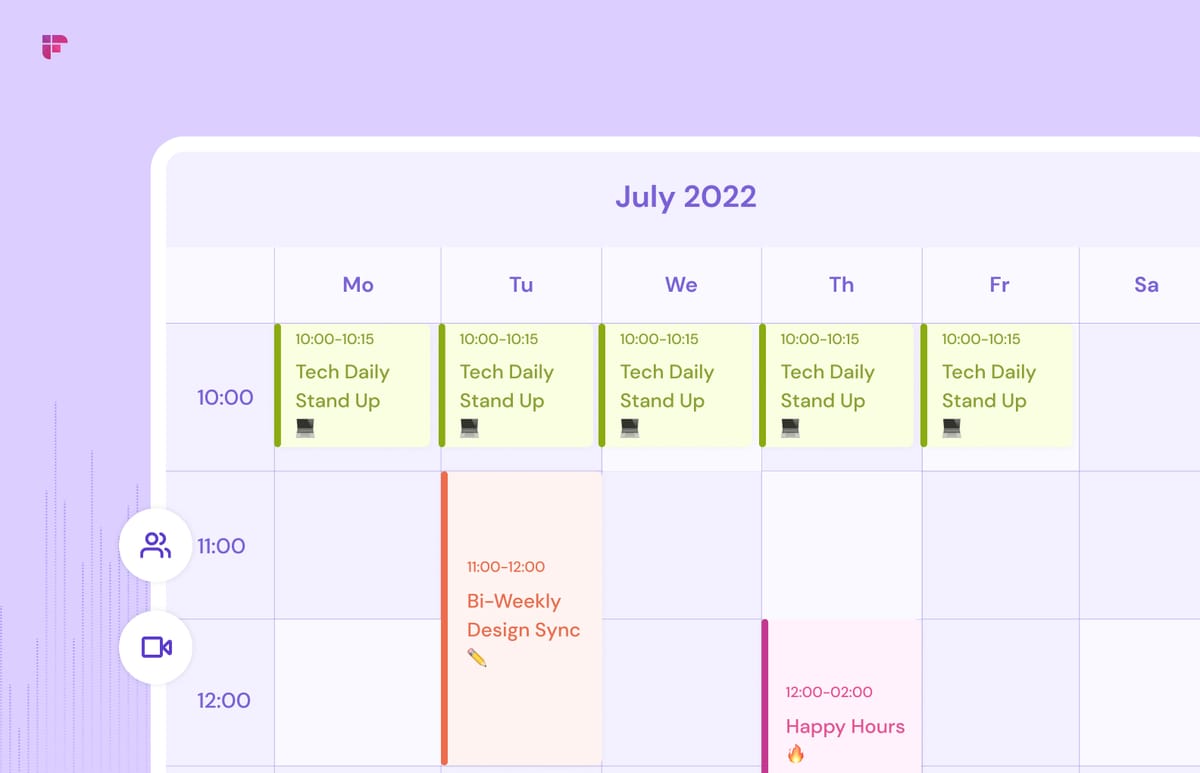
What is a sales cadence?

A Sales Cadence is a predefined sequence of touchpoints or outreach methods that you can use to engage prospects better. An impactful cadence will be spread out over a set schedule, leveraging varied outreach channels such as email, phone, and social media.

Why do you need a sales cadence?
A thoughtfully created, well-defined sales cadence can make your sales process far more efficient and effective.
Increase your sales efficiency
With a sales cadence in place, you will have one less decision to make by following a predefined structure.
Rather than exhausting your efforts to decide when and how to reach out to each lead, you can concentrate more on building relationships and closing deals.
Moreover, instead of a haphazard approach, clearly defined rules for your sales strategy make it easier to track your sales process. You minimize missing important steps or risk sending the same email twice.
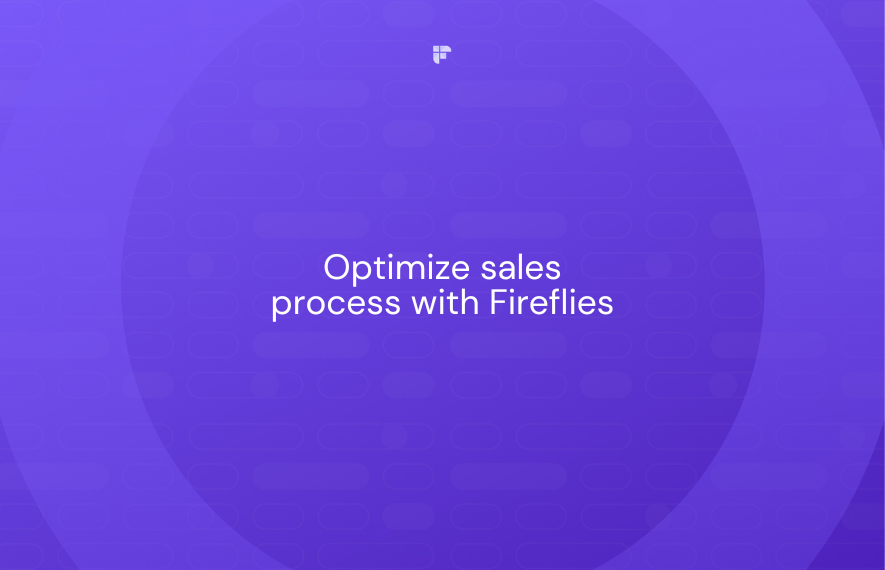

Track better—convert more
With a well-defined sales cadence, you can view your progress and where each prospect stands in the sales funnel. You can reach prospects at the right time and mindset to make a purchasing decision.
On the other hand, without a defined sales cadence, such opportunities either take longer to close or can slip through the cracks entirely.
Provide a consistent customer experience
Trust plays an important role in purchase decisions. One of the ways to build trust is through consistency. A sales cadence ensures uniform attention and service for every prospect, regardless of the team member reaching out.
From personalized post-call emails to valuable touchpoints, this approach not only pleases customers but also facilitates effective sales team tracking and optimization.
Manage scalability with ease
When you have to handle many clients at a time, and your team is expanding, having a clearly defined sales cadence solves that scalability issue. A sales cadence certainly makes it easier to organize and track where prospects are in the pipeline, and you can tag others along in your sales team to get the work done.
Building an effective sales cadence
Crafting an effective sequence tailored to your customers’ needs requires strategic planning.
Research
Crafting an impactful sales cadence involves alignment of your prospect’s needs, available resources, and sales objectives. A comprehensive cadence is one that starts with goal-setting with a more nuanced approach.
Initiating the cadence with a specific goal not only adds precision but also enables you to make informed decisions, tailoring the experience for each prospect.
Understanding your target audience helps you in making a great sales cadence. Make sure you know as much as possible about your target audience. Here are a few pointers:
- Industry
- Company size
- Sales Territory
- Job title
- Psychographic factors
- Behavioral data
- Purchase Patterns
- Pain Points
Once you know a few things about your prospect, you can segment them by buyer personas to be efficient. After finalizing your segments, pick the perfect channels for reaching them. A cadence typically spans multiple channels. The greater the involvement of your segment with each channel, the better the chances of overall effectiveness.

Planning
Once your research phase wraps up, it's time to dive into crafting your sales cadences. Ensure each cadence step is crystal clear, allowing every team member to seamlessly adhere to it.
Every step within your sales cadence must establish a connection with the right prospect at the right moment, using the right content.
For a swift outline of each cadence step, consider including:
- Communication channel
- Number of contact attempts
- Time intervals between attempts
- Key messaging
- Design and image notes
- Timing for the subsequent step
This ensures a cohesive and effective approach that your entire team can easily implement.
Automation
After making the blueprint for your sales cadence, explore opportunities to introduce automation. This strategy proves invaluable for sales teams handling bigger volumes. Leveraging a sales automation tool enables you to seamlessly maintain sequences for prospects at various cadence stages. By incorporating automation, you streamline processes and enhance efficiency, allowing your sales team to navigate larger volumes with ease.
You can use AI tools like Fireflies.ai to help you streamline your sales processes. We'll get into the details of this further ahead.


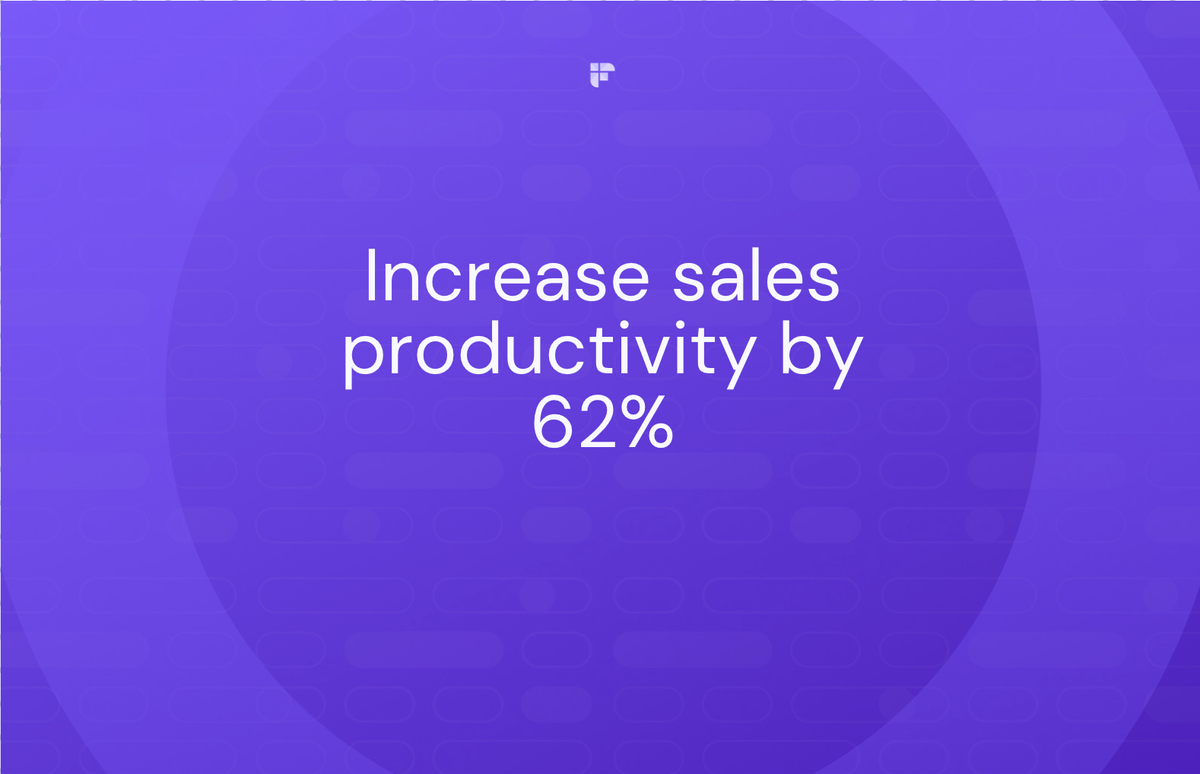
Sales cadence examples that work
B2B sales cadence
If your business caters to traditional industries favoring direct communication, this sales cadence will suit you.
Day 1: Initial phone call
Day 2: Email to schedule a meeting
Day 4 – Second Phone call + Voicemail
Day 7– Personalized Email
Day 10: Third phone call attempt
Day 18 – Follow-up email
Day 30– Phone call + Email
After 30 days – Follow-up email
After 6 months – Outreach via phone
Follow through till you get a definite response from the prospect.
Digital-oriented cadence
You can tailor your sales cadence for tech-savvy prospects and make it focus on digital channels, especially social media.
Day 1: Connection request on LinkedIn with a personalized message
Day 3: Email to introduce your product or service
Day 5: Engagement with the prospect’s social media content
Day 7: Sharing helpful content via Email (e.g., report or infographic)
Day 10: Mini-pitch sent via direct message or LinkedIn InMail
Day 14: Conclude with a final follow-up email.
The hybrid outbound cadence
This hybrid approach blends traditional and digital touchpoints, providing a well-rounded strategy suitable for outbound leads in diverse industries.
Day 1: Introductory cold email
Day 2: Follow-up phone call in case of no response
Day 4: Connection request on LinkedIn with a personalized message
Day 6: Second email, providing more product insights
Day 8: Second phone call attempt
Day 11: Engagement with prospect’s social media content
Day 14: Conclude with a final email, offering a demo or consultation
Inbound sales cadence
When a qualified lead signals interest, you can intensify your inbound sales cadence to ensure optimal engagement, leveraging diverse channels.
Day 1: Initiate with a phone call
Day 3: Follow up with an email
Day 5: Phone call with a voicemail
Day 6: Reinforce engagement with another email
Day 11: Text or LinkedIn message, followed by an afternoon phone call
Day 16: Phone call with a voicemail
Day 20: Email coupled with a phone call
Day 30: Phone call + Voicemail + Email
Day 60: Sustain interest with an email
Every 30 days thereafter: Maintain connection with strategic email outreach
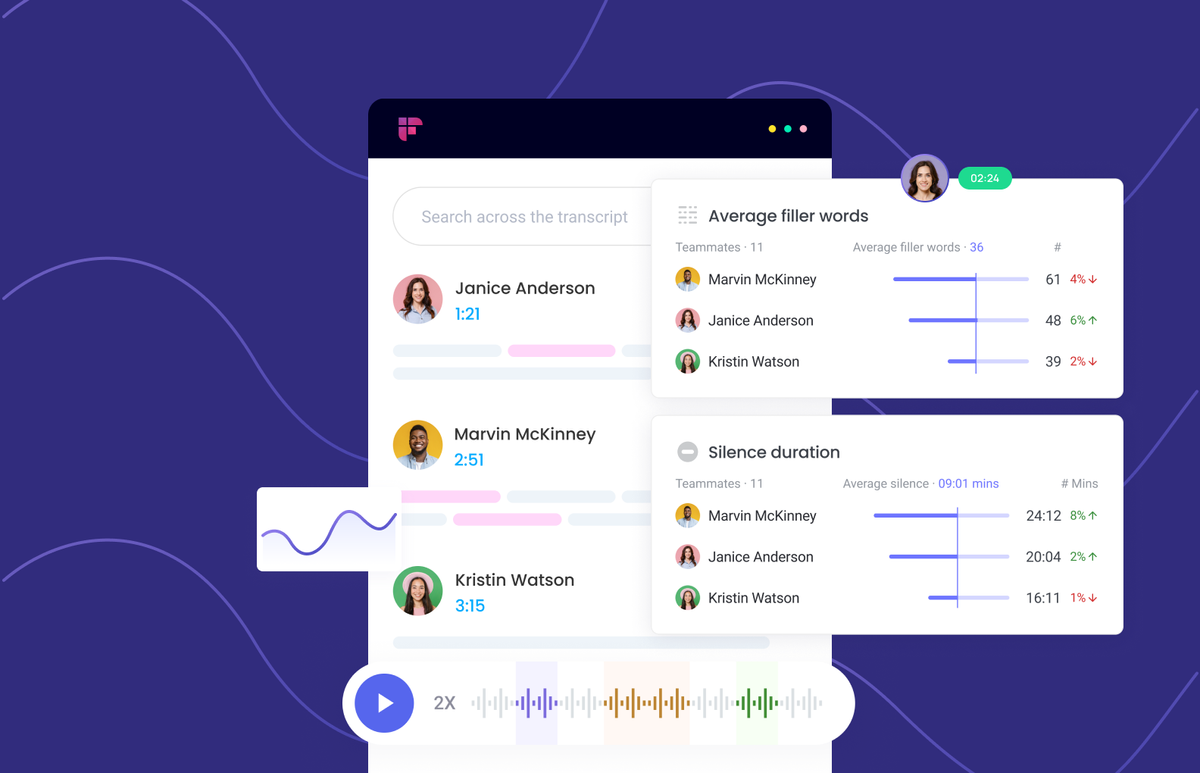
Best practices for conversion

Here are a few best practices that help you in the conversion of your sales:
Personalize your message
Use your sales cadence research to generate personalized communication with your prospects. Using personalized communication makes you stand out and gives you a better chance of closing a sale.
Focus on value proposition
It's crucial to make your prospects recognize the value they can gain from the interaction. Clearly communicating the benefits of your product or service upfront is essential to maintaining their interest.
Don't be pushy
There are varying opinions on the number of calls required to establish a connection with a potential client—some suggest it's five, while others argue it might take as many as eight. The best practice is to keep it below 3 touchpoints on a given day.
Test and optimize
Continuous learning is key in mastering sales cadences. Once your cadence is in place, meticulous monitoring of its performance becomes crucial. Should any hiccups arise, it's essential to investigate the root cause and address the issue promptly.
Accept rejection with grace
Receiving a "No" from a prospect can be tough, but an even more challenging scenario is when there's no response at all. This is where the effectiveness of a breakup email comes into play. Crafted with courtesy, it allows you to gracefully communicate that you're closing the current chapter while leaving the door open for prospects to reconnect if they so desire in the future.

Elevate your sales game With AI
As discussed earlier, consider integrating an AI assistant like Fireflies into your team to elevate your sales strategies.

Fireflies, an AI notetaker and conversation intelligence tool, streamlines and enhances your sales cadence. It automates note-taking, ensuring no vital details are overlooked. You can customize meeting summaries to extract only the necessary information, analyze conversations, track specific phrases and words, push meeting notes to your CRM, create and organize sound bites into playlists, and more.
Enhance your sales cadence with Fireflies!
With Fireflies, you never miss out on any detail to create a thorough and effective sales cadence.
Try Fireflies for free!By leveraging these features, you can efficiently capture, transcribe, and analyze interactions, gain valuable insights into customer preferences, and create an impactful sales cadence.
